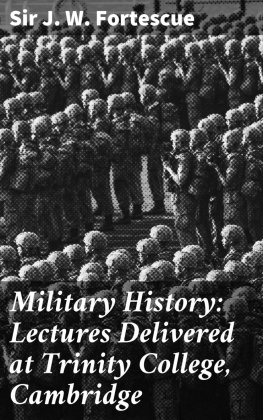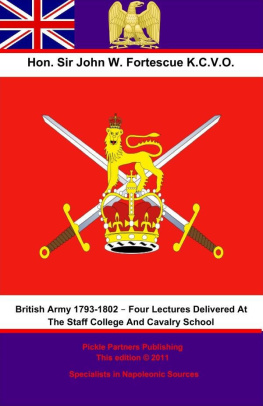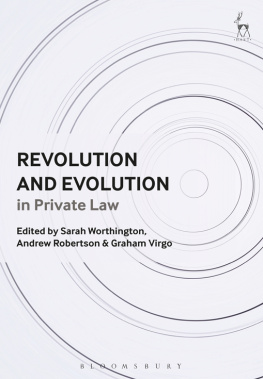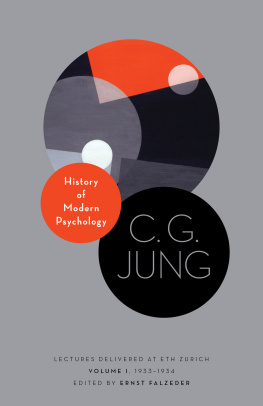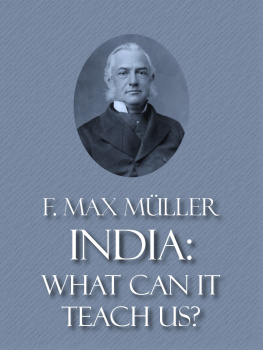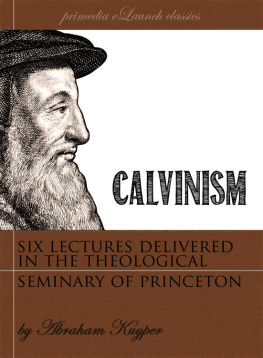MILITARY HISTORY: ITS SCOPE AND DEFINITION
Table of Contents
When in the spring of the year 1913 my old College did me the honour to appoint me its first lecturer in Military History, I was obliged for the first time to ask myself seriously, What is military history? I confess that I have found it very difficult to furnish a satisfactory answer. Some would reply with a light heart that military history is the history of wars and warring. But what, in its turn, is war? It has been defined as an instrument of policy for the imposition of the will of one community upon another by force of arms. The definition is not a bad one. But force of arms is a very vague term, and must not be taken necessarily to imply an armed force in the ordinary acceptation of the words. You will remember that after the French fleet had been swept by us from the seas in 1805, Napoleon, unable to attack England by any other means, decreed the exclusion of British manufactures from the Continent, and endeavoured to ruin her by shutting her out of her markets. This he was able to do because his previous conquests had placed the control of many of the principal ports on the Continent in his hands. But though he strove thus to inflict his will upon England by might of arms, the armed men necessary for enforcing it were nothing more formidable than a small body of Custom-house officers. No doubt these functionaries, or some of them, carried weapons and in case of need were prepared to use them; but they cannot be considered as a military body. None the less as an act of war the Continental System was a bitter and deadly stroke, which nearly proved successful.
Is the history of the Continental System, therefore, military history? So far as concerns the invasion of Spain, Portugal and Russia to coerce those countries into the acceptance of it, undoubtedly it is. But as regards England, the power at which it was really aimed, what are we to say of it? How did we endeavour to combat it? How does any country invariably combat the commercial restrictions of any other? First by imposing retaliatory restrictions of her own, or engaging in a war of blockades or tariffs, which may be called regular commercial warfare; secondly, by the practice of smuggling, which may be called irregular commercial warfare. Is the history of a war of tariffs, then, military history? If we answer in the affirmative there is no escape from the logical conclusion that the never-ceasing contest between smugglers and revenue-officers in all countries is military history. Moreover, since revenue-officers are only departmental police, it follows that the external struggle between the breakers and the upholders of the law at largebetween criminals and the policeis also military history. But this is to say that the history of social communities generally is military history; and I cannot think this to have been in the mind of the generous founder of the lecturership which I have the honour to hold.
But can we then lay down the general proposition that the breachthe forcible breachof commercial regulations is not military history? I do not think we can, if we bear in mind how Spain, in virtue of a Papal bull, excluded all other nations from commerce with the new world, and how successive Englishmen for many generations insisted upon flouting her. Nor can we say that in many cases the conflict between supporters and breakers of the law is not military history. It is merely a question of degree. A fight between three drunken men and the police is a scuffle. A fight between three hundred men and the police is a riot. A fight between three hundred thousand and the police is civil war; and we cannot exclude civil war from military history, for it would mean the sacrifice, among the English-speaking race alone, of the campaigns of Cromwell, George Washington and Robert Lee. Altogether I think that we must abandon the attempt to define military history as the history of wars and warring. I feel tempted to ask in despair not "What is military history?" but rather "What is not military history?" since all history is but the record of the strife of men for the subsistence of their bodies or the prevalence of their opinions. But we must be patient for yet a little while, and try once more.
Let us begin, then, by laying it down provisionally that military history is the history of the strife of communities. This is not enough; for communities have been known before now to fight with anathemas, and such a conflict belongs rather to the domain of religious than of military history. Shall we say then that it is the history of the strife of communities for self-preservation or expansion? This is open to the obvious criticism that communities have fought and will fight again for many other objects than the two above-mentionedfor a woman, for a creed, for a principle moral or political, or even for nothing at all but from sheer force of habit. So it will be wiser for us to avoid any specification of the objects of strife, or we may find ourselves in trouble. It may be true in a sense to say that a tantrum of Madame de Pompadour cost the French their empire in North America and in India; but it is not the whole truth, nor nearly the whole truth. Even the best and greatest of historians are but gropers in a thick darkness, and epigrams are the most deceitful of will-o'-the-wisps.
Let us now, as we needs must, strengthen our definition a little, and say that military history is the history of the strife of communities expressed through the conflict of organised bands of armed men. I am obliged to say bands of armed men so as to exclude such a case as a duel between two or more chosen champions of quarrelling communities; and I add the word organised so as to indicate that, below a certain stage of civilisation, there can be no military history. This is a second definition, but still imperfect; and I am afraid that I cannot yet improve it. It leaves a vast field for the survey of a lecturer, far vaster than I have the knowledge to cover; and, if Trinity should endure for another ten centuries, my successors will never want material for interesting and instructive lectures. And let no man persuade you that the subject is trivial or unimportantthat the study of war is the study of a relic of barbarism to be eschewed by the serious, the devout and the humane. I am not denying that war is a terriblefrom some points of view even a hideousthing. Since its object is to compel a number of people to do what they do not wish, by making their lives a burden to them, it must sometimes be a hideous thing. But, after all, the system of forcing people to observe a certain line of conduct under penalties is that upon which all human society is founded. We are all subject to it at this moment, and have been from the beginning of our lives. You remember the mother in Punch"Go and see what baby is doing, and tell her she mustn't." "Thou shalt not" is the basis of four-fifths of the ancient code of law which is most familiar to us, and of all other codes since. But in every community there are a certain number of individuals who answer "Thou shalt not" with a resolute "I will"; and these we ostracise, or imprison, or hang. We call such people lunatics or criminals, accordingly as we consider them responsible or not responsive for their actions, and we treat them as we think that they deserve; but, if by chance their opinions should later prevail even for a time, we proclaim them apostles or martyrs. There is, in fact, always the danger that, when we think ourselves to be merely punishing a criminal, we may really be torturing a great reformer. Hence a certain proportion of folks among us shrink from this system of coercion, and would have no government at all. Others again, looking upon the existence of private property as the main reason for the existence of the policeman, would have communities share all things in common. I mention these facts to show you that the employment of force receives from some thinkers equal condemnation, whether to impose the will of a community upon its own citizens, or upon those of some other community.


